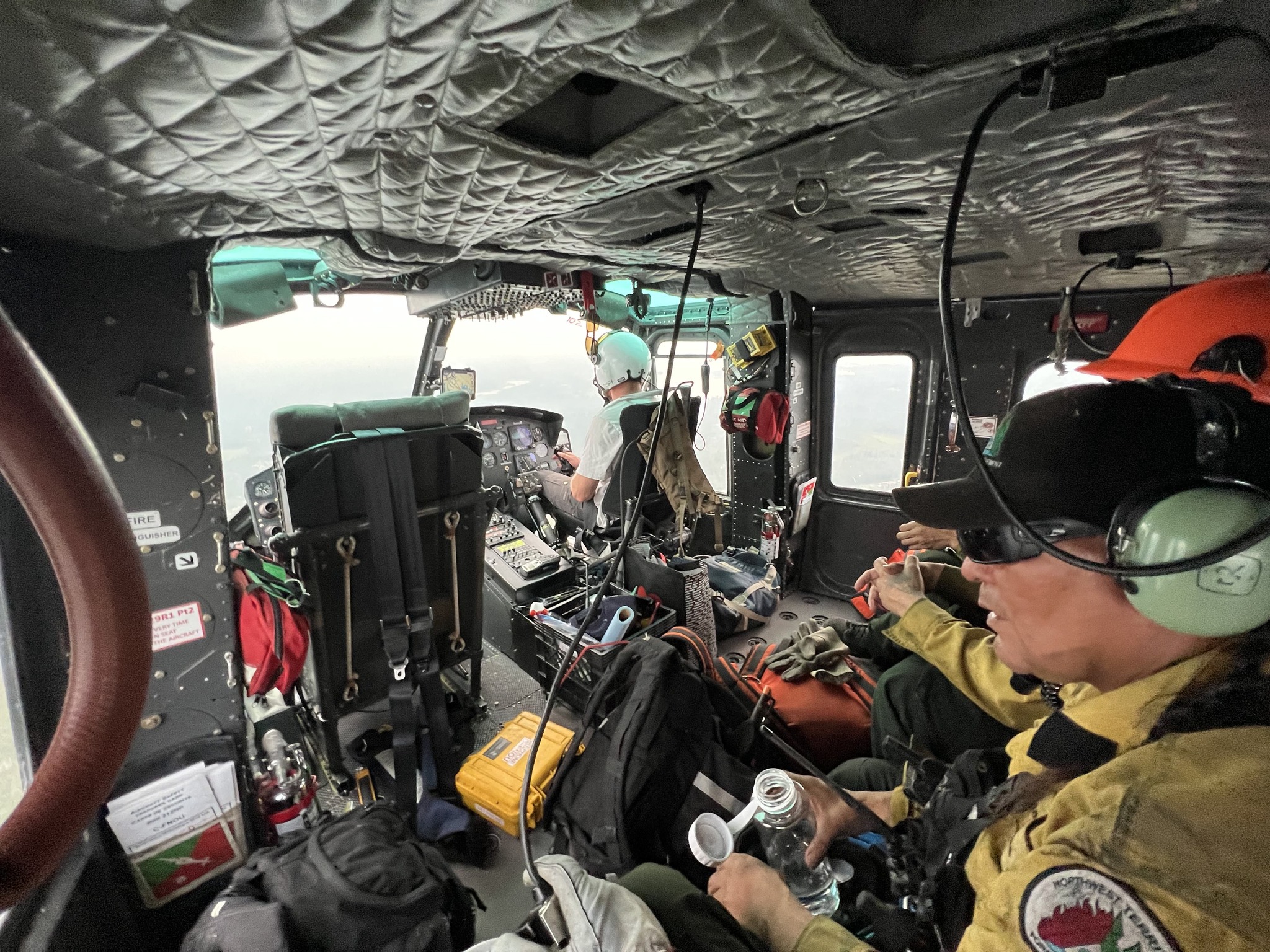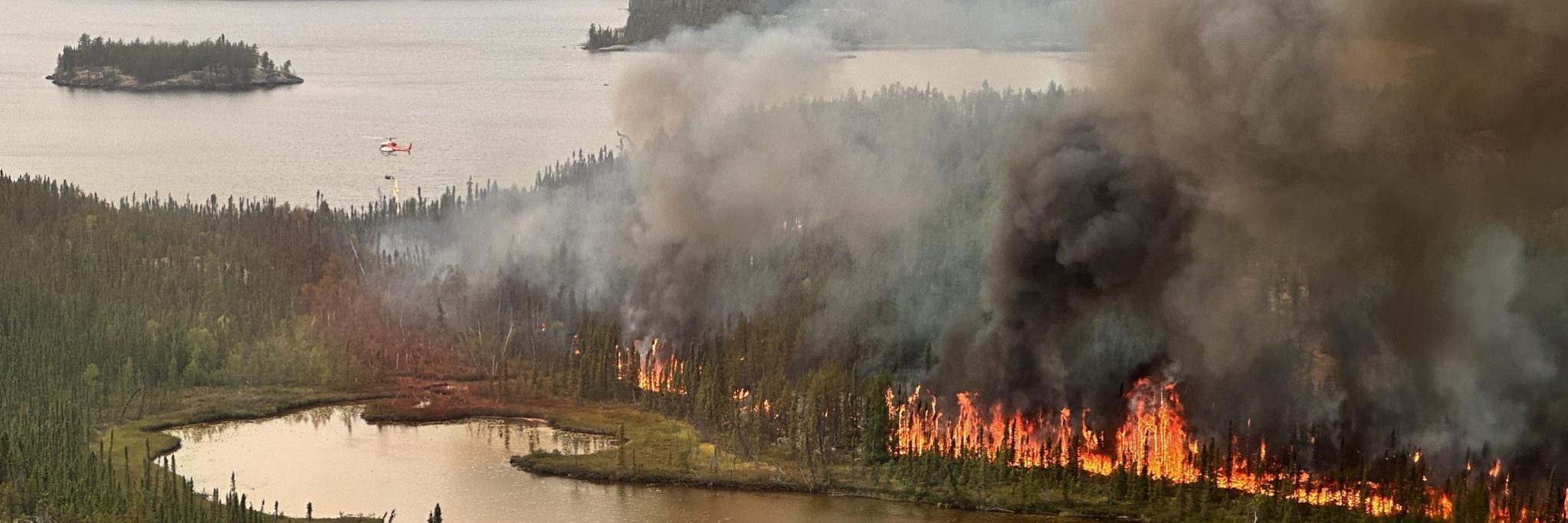Canadian fire crews battle the Behchokǫ̀/Yellowknife fire. Image credit: NWT Fire via Facebook.
Canadian fire crews are battling to prevent wildfires from spreading to the city of Yellowknife, where all residents were ordered to evacuate on Thursday.
The evacuation order stated that those living along the Ingraham Trail were at the highest risk and should evacuate immediately.
Other residents were given until midday on Friday 18 August (local time) to evacuate.
Residents who chose to stay would be doing so “at their own risk” and with the understanding that emergency responders may not be able to assist them.
These orders impact the entire capital city of Canada’s Northwest Territories with a population of over 20,000 people.
Water bombers flew over Yellowknife as intensifying smoke hit the region.
Officials anticipate the fire could reach the outskirts of the city by Saturday if there is no rain.
“Critical, challenging days ahead – with two days of northwest to west-northwest winds on Friday and Saturday, which would push fire towards Yellowknife,” the NWT territorial fire service wrote in a statement on Facebook.

“This weather event has the potential to be the most challenging 24 to 48 hours of the summer from a fire perspective,” said British Columbia Wildfire Service director Cliff Chapman.
“We are expecting significant growth and we are expecting our resources to be challenged from north to south.”
This is reported to be one of the country’s worst wildfire seasons with more than 1,000 active fires burning across the country.
Wildfires are common in Canada’s western provinces, but it is uncommon to see such widespread destruction — especially for this time of year.
Experts are claiming that climate change is exacerbating the problem.
There have been 5,765 fires in Canada this year and five deaths as a result of these fires.
Canadian fire crews will continue to work into the night to slow the spread of the fire and address any hotspots.
The City of Yellowknife is urging residents to avoid areas where emergency measures are underway.





